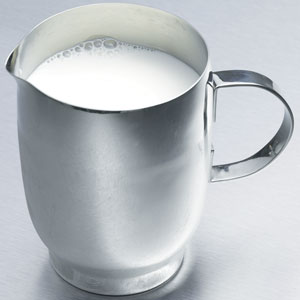NMPF and IDFA Urge Wisconsin Lawmakers to Reject State Legislation Allowing Sales of Unpasteurized Milk
September 11, 2013
 ARLINGTON, VA – For the second time in three years, organizations representing the nation’s dairy farmers and dairy companies jointly urged state lawmakers in Wisconsin to reject efforts allowing raw milk sales directly to consumers in the nation’s second-largest dairy state.
ARLINGTON, VA – For the second time in three years, organizations representing the nation’s dairy farmers and dairy companies jointly urged state lawmakers in Wisconsin to reject efforts allowing raw milk sales directly to consumers in the nation’s second-largest dairy state.
In a letter sent Tuesday to Wisconsin state senators, the National Milk Producers Federation (NMPF) and the International Dairy Foods Association (IDFA) said that the risks inherent in raw dairy products are not worth any purported benefits to either consumers or producers of unpasteurized milk products. The two associations urged lawmakers to reject Wisconsin State Senate bill 236, which would allow the state‐wide direct sale of raw milk. The measure is the subject of a hearing today in Madison.
“Consumption of raw milk has been opposed by every major health organization in the United States, including the American Medical Association and the American Academy of Pediatrics. The link between raw milk and foodborne illness has been well‐documented in the scientific literature, with evidence spanning nearly 100 years. Raw milk is a key vehicle in the transmission of human pathogens, including E. coli O157:H7, Campylobacter, Listeria monocytogenes, and Salmonella,” the organizations wrote.
Federal law prohibits the interstate sale of raw milk, but allows states individual discretion to regulate raw milk sales within their borders. Several states in recent years have considered legislation expanding the sales of raw milk, even as the product has been repeatedly linked to serious illnesses from coast to coast. At a school event in Wisconsin in 2011, 16 individuals, including fourth-grade students and adults, drank raw milk donated by a parent and later suffered from diarrhea, abdominal cramping, nausea, and vomiting from Campylobacter infections.
IDFA and NMPF wrote that “it is the responsibility of Wisconsin’s leaders to make decisions to protect the health of the public, most especially those who are minors and are unable to make fully informed decisions that could have profound consequences for the rest of their lives.”
The two dairy groups mentioned in the letter that “the Centers for Disease Control (CDC) has reported that nearly 75% of raw milk‐associated outbreaks have occurred in states where sale of raw milk was legal. Legalizing the state‐wide sale of raw milk in Wisconsin increases the risk to public health, opening up the state’s consumers to the inevitable consequence of falling victim to a foodborne illness. No matter how carefully it is produced, raw milk is inherently dangerous. Americans have become ill after consuming raw milk obtained from farms of varying sizes, from cow‐share programs, and from licensed, permitted, or certified raw milk producers.”
“Nationally, our dairy industry benefits from a very high degree of consumer confidence – confidence built in large part due to the excellent food safety record of milk and dairy products. In fact, current statistics estimate only 1‐2% of reported foodborne outbreaks are attributed to dairy products. However, of those, over 70% have been attributed to raw milk and inappropriately‐aged raw milk cheeses. A single case of illness – even one caused by a well-intentioned dairy farmer – that is attributed to raw milk or raw dairy products in Wisconsin would likely have an adverse effect on consumer confidence in and consumption of all healthful, nutrient‐rich dairy foods like milk, yogurt, and cheese.”
“While choice is an important value, it should not pre‐empt consumers’ well‐being. Legalizing the state‐wide sale of raw milk is an unnecessary risk to consumer safety. Therefore, we strongly urge you to oppose Senate Bill 236,” the letter said.
The two organizations made a similar plea against liberalizing raw milk sales in 2010, when former Wisconsin Governor Jim Doyle was presented with a bill that he ultimately vetoed.
The National Milk Producers Federation, based in Arlington, VA, develops and carries out policies that advance the well being of dairy producers and the cooperatives they own. The members of NMPF’s 30 cooperatives produce the majority of the U.S. milk supply, making NMPF the voice of more than 32,000 dairy producers on Capitol Hill and with government agencies.
The International Dairy Foods Association, Washington, DC, represents the nation’s dairy manufacturing and marketing industries and their suppliers, with a membership of 550 companies representing a $125-billion a year industry. IDFA is composed of three constituent organizations: the Milk Industry Foundation (MIF), the National Cheese Institute (NCI) and the International Ice Cream Association (IICA). IDFA’s 220 dairy processing members run more than 600 plant operations, and range from large multi-national organizations to single-plant companies. Together they represent more than 85% of the milk, cultured products, cheese and frozen desserts produced and marketed in the United States. IDFA can be found online at www.idfa.org.
Download





